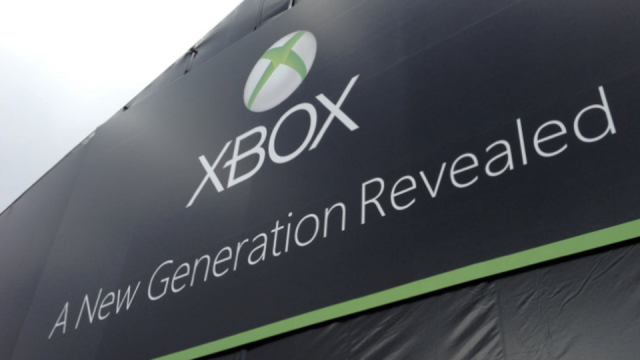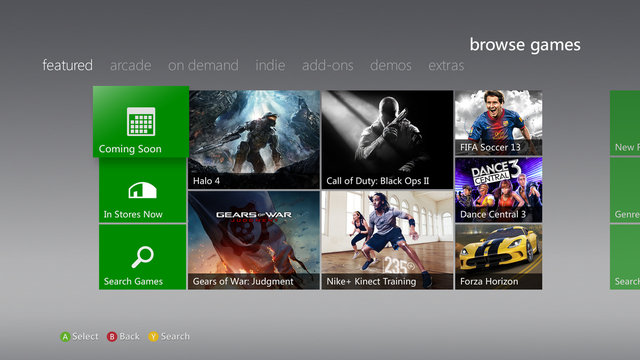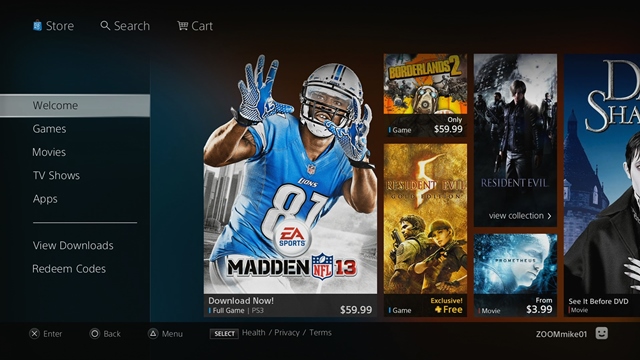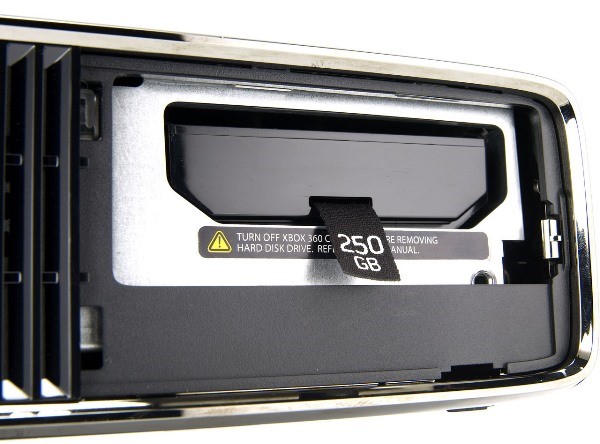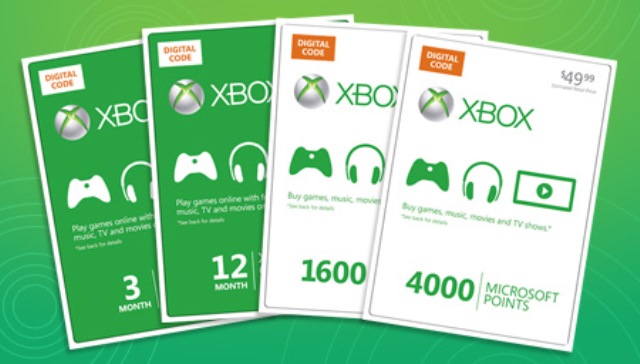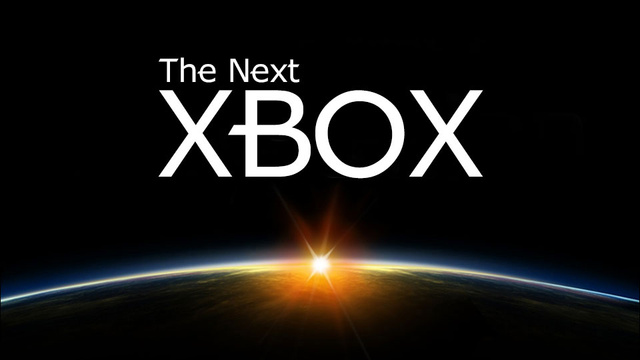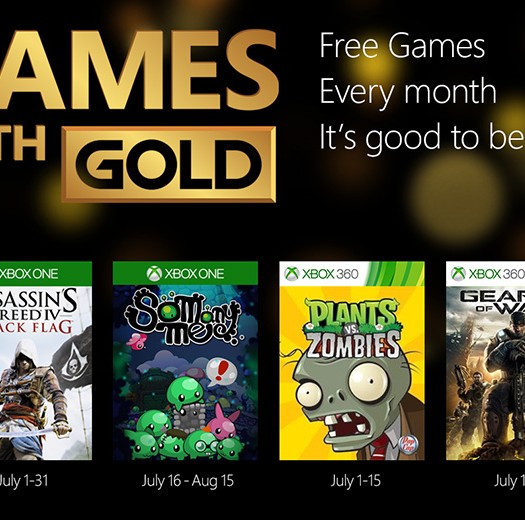Tomorrow at 10 am PDT, Microsoft will likely tell us all some things we already know. The Xbox creator will also tell us plenty that we don’t already know. Some rumors will probably be proven true, others false. New games and features will be discussed and, in some cases, shown. Ultimately, the curtain is going to fall on Microsoft’s event before the public hears everything it wants to hear. Microsoft is only going to tease us, with a more complete showing of all its console plans for the years ahead not coming until the console holder’s traditional pre-E3 media briefing on June 10.
But tomorrow we will know something we don’t know today. We’ll know something about what direction Microsoft plans to steer the Xbox brand in over the course of the next generation. Sitting here right now, I can honestly say that I know nothing more than any other gamer who’s followed the supposed leaks over the past few years knows about what we’re going to see tomorrow. Rather than make educated guesses about what might be shown tomorrow and at E3, XBLAFans is following up last week’s look at how developers feel about XBLA as it currently stands by having them speak about where they want to see it go in the next generation.
During PAX East this past March, we cornered six game developers and asked them one question: If you could change any one thing or add any one feature to the next-generation version of Xbox Live Arcade, what would it be?
Come out and play
The one thing they repeatedly told us was exactly what you’d expect: more discoverability. Game developers usually work long hours for years on end to bring gamers entertainment. To bring them art. To bring them a vision realized. When development is finished, the least studios should be able to ask for — and be granted, for that matter — is the ability to present that vision with gamers. Developers want it to be as easy as possible for gamers to find the games they’re looking for. The developers XBLAFans spoke with mostly believe, contrary to what many others have complained about in the past, their games can already be found easily enough, but that there’s still room for improvement.
“Well, to me, I don’t have any major problem with [Xbox Live] Arcade as it is now,” The Behemoth President John Baez told XBLAFans. “I think what will continue to benefit in the future both XBLA and PSN and Steam as well, is simply discoverability. You know, discoverability for independent developers is and will be the number-one problem in the future, because if you don’t have the marketing budget of an EA to get yourself up on the dash, it’s gonna be hard if you don’t understand how to do stuff like [exhibiting at game conventions]. It’s going to be hard to get noticed, and that will impact every developer. And it especially affects independent developers more so.”
When asked directly if discoverability was currently an issue with Xbox Live Arcade, Baez responded that he did not believe it was. He worries, though, that it’s something that could become an issue in the future depending on the choices Microsoft makes. He explained that, for The Behemoth (BattleBlock Theater, Castle Crashers), its sales numbers tell the story of discoverability being priority one. He recounted a time when Sony made a change to how games were found on its PlayStation Network and how that negatively affected The Behemoth’s sales.
“For example, with PlayStation, when they changed the storefront in December, we lost sales because of the new lack of discoverability,” Baez said. “So, we hop with the PlayStation 4 that it has more discoverability, as with [Xbox] 720. The better discoverability, the more games that will get sold. That is the bottom line. The more friends, the more fun people will have and the more rich the ecosystem of that particular console or platform. If nobody’s finding the games that are there — and they are there — if they can’t find them it’s going to be Sadtown.”
Amir Rao, studio director of Supergiant Games, has similar feelings to Baez when it comes to what he’d like to see Microsoft do with Xbox Live Arcade in the future. “I can’t really think of a single thing that I would change about it at the moment,” he said. “I think it’s always great to see more games on the front page, so more games on the front Dash would be good, I think. That’s what I’m interested in as a gamer and as a game player, so that’s what I’d like to see more of.”
Supergiant’s Bastion had the benefit of being a Summer of Arcade release in 2011, a privilege that usually equates to an XBLA game achieving higher sales and wider spread publicity then Arcade games released outside of the yearly promotion. Interestingly, though, 90 percent of Bastion‘s considerable sales came after that promotion had run its course.
If development is completed in time, XBLAFans wouldn’t be surprised to see Capybara’s Super Time Force appear in this year’s iteration of the Summer of Arcade. Lead Writer and Designer Dan Vader probably wouldn’t mind seeing that happen, as it would mean better discoverability for his team’s pixelated shooter. Vader, however, is thinking in broader terms. He wants it to be easier for gamers to find all games on XBLA, not just his own.
“I think I just want to know where to find the games faster,” he told XBLAFans after a moment spent silently thinking about what he’d like to see changed in the next-gen version of XBLA. Like Baez, though, Vader is concerned about all digital game platforms. “That’s not just an XBLA thing. That’s an everything thing. Hide less. Where’s the game? I don’t have a lot of time to surf through menus, and maybe I don’t always have time to read reviews. I wanna just — when I’m on something show me a little bit of something instantly. I want to download the trailer. I want to see where the games are immediately. Just get in and get out.
“Because there’s just so much. As I get older, I got two kids, I got things to do. I can’t just spend all my time on the internet figuring out what to play next.”
More, more, more
That developers want their games to be more easily located on Xbox Live Arcade should come as no surprise. Complaints, emanating from gamers and developers, revolving around that very issue have been many in recent years. Isn’t there anything else developers want? As a matter of fact, there is. They want more. More space. More codes. More patches. More everything.
Just last week developer Lab Zero Games released a patch for fighter Skullgirls. That same patch released on PSN in November. The hold up? Microsoft’s stingy space requirements for XBLA game patches. Though the 4 MB size limit XBLAFans originally reported was in place for XBLA patches has since been proven to be erroneous, it remains true that Microsoft does have a size limit in place of some sort. The publisher is in some way limiting how big XBLA games and their patches can be. It has showed a willingness to look the other way on occasion, but it would seem most developers are being made to play by the rules.
Twisted Pixel 2D Artist and Community Manager Jay Stuckwish says that limit is “absolutely not” holding his team back. By the same token, though, he is hoping for more space the next time around. What Stuckwish would like to see in the next-gen XBLA is “larger size limits on the games,” he said. “Because, apparently games are getting bigger and bigger and sticking to a two-gig limit is kind of difficult to stay within, so we’re hoping that that can open up a little bit more.” Stuckwish claimed that Twisted Pixel would put more features, more voice work and bigger worlds — making for lengthier experiences for XBLA gamers — into its games were the size limit raised.
Of course, once a game is released, it will inevitably require patches and DLC, and it’s not just the size limits that are causing problems for developers working on post-release content. It’s also that notoriously slow certification process that seems to hold up so much content.
“For us specifically, it would have been very welcome to [be able to] release patches the way we could on Steam,” Ronimo Games Producer Robin Meijer told XBLAFans. “That would have allowed us to fulfill our vision for the game. Like I said, there is something to be said for how Microsoft handles patches right now. You go through a certification process, so whatever you release is supposed to be very solid content. Whereas, on Steam, we’ve had a couple of cases where we’ve actually broken our own game by causing more bugs than we had before. And that doesn’t happen on XBLA because of the system Microsoft has. So it kind of works both ways.”
Interesting. The much-maligned XBLA certification process might not be completely bad after all. Still, Meijer conceded that he would enjoy having the ability to patch to his heart’s content in the next generation. “I guess being able to update the game at will would be very awesome from a developer standpoint,” he told XBLAFans.
So if gamers can find the games they’re looking for, those games are bigger and they’re updated more often, what else do they need? They need a better way to get those games off of the Marketplace and onto their hard drives. At least, that’s what Ska Studios’ Michelle Juett Silva thinks. “Give us codes!” she exclaimed, cutting off husband James Silva before he had a chance to answer my question about what he’d like to see changed in the next generation. “We want to be able to sell codes.”
“I want to be able to distribute codes and give out codes and that sort of thing,” she continued. “We get a bundle of them at the beginning, but after that, that’s all we get, so…”
Juett Silva, clearly unhappy with the volume of codes handed out to developers by Microsoft, trailed off at that point before collecting her thoughts and continuing a few moments later. “Yeah, we have to say you have to actually just go buy [our game],” she said. “We can’t just give you a code. Gifting, bundles, like, a four-player bundle would be amazing.” For Ska Studios, handing out a four-pack of codes makes perfect sense. The husband and wife team is working on multiplayer brawler Charlie Murder for Xbox Live Arcade.
James Silva recalled a time in which he found himself in an Xbox Live party with some kids. The youngsters didn’t have credit cards, so they couldn’t acquire digital games they wanted on the spot. They’d have to either go get their respective parents or run to the local game store to purchase some points. Silva wanted to be able to simply gift each of the kids a copy of the game as players on Valve’s Steam service can. It isn’t possible to do so on XBLA, so the kids were out of luck.
The Silvas want codes to give out over Live to friends, allowing for a viral spread of games, particularly multiplayer ones. But they also want codes to sell to gamers, which would allow for pre-orders of digital games — another feature Valve offers but Microsoft doesn’t. “Especially [at game conventions] some people are like, ‘Oh, is this game out now?’ And [if we had codes] we could be like, ‘Do you want to buy the game right now?’” Juett Silva explained.
Better, not “just as good”
Microsoft is rumored to be ditching its current Microsoft Points system in favor of something more akin to the payment system iTunes employs. For most gamers, that’s a much-needed change, but Microsoft shouldn’t stop there. It should add in all of the functionality that Steam currently has, like codes for gifting and preorders. Then it should keep on going. No one’s buying a Wii U because it does things that the Xbox 360 and PlayStation 3 have been doing for years — few are buying one at all, actually — and no one is going to buy a next-gen Xbox simply because it does what its competition already does. It needs to do more.
We’ve seen that there much to like about the current version of Xbox Live Arcade. Microsoft’s policies do a solid job of keeping shovelware off of the platform and making sure an impressive lineup of digital games from small studios are available for Xbox owners, but it could be easier to find them. And buy them. We may not find out whether or not Microsoft plans to address all of the issues brought up in this article tomorrow or even at E3 in June, and that’s OK.
What’s not OK is if Microsoft launches its next console without a plan in place to make XBLA game development, releases, shopping and post-release content approval easier. Microsoft is already pretty good at all of those things. Pretty good, however, doesn’t cut it when you’re trying to sell tens of millions on a new (presumably) $399 entertainment box. Grand entertainment schemes, big publishers, big developers and big sequels are likely to get the brunt of the next-gen XBLA attention in the weeks ahead. But by the time launch day rolls around, Microsoft needs to fix its current issues and introduce plenty of new features to make its digital storefront exciting.
Being just as good as the other guys won’t cut it. The “other guys” are going to get better. If Microsoft wants to be the market leader again, it’ll need to improve so much that Sony and Valve are left playing catch-up in at least some areas and be on even ground in most others.
Tomorrow, we’ll know what the publisher is planning. This time next year, we’ll know if it was enough.

